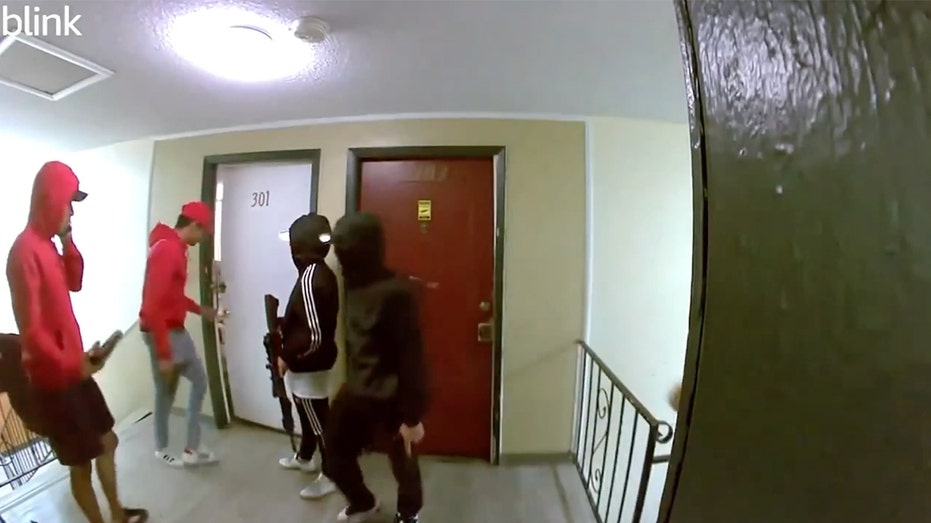New funding approved for police in Colorado after record homicides, gang taking over communities and charging for protection. Colorado voters approved a ballot referendum that earmarked $350 million of the state’s budget for recruiting, training and retaining law enforcement officers.
Four years after a frenzy to defund police departments nationwide, Colorado voters approved a ballot referendum that earmarked $350 million of the state’s budget to recruiting, training and retaining law enforcement officers.
There is a narrative that immigrants are to blame for the violence but in reality, the police have not done there job. They have the ability and numbers to protect the community but have left certain zones unpatrolled which has given the gangs more opportunity. The politics of policing and governance has taken over the job of policing.

New Funding approved for police in Colorado after record high homicides and gang takeovers
Proposition 130, which passed with just shy of 53% of votes, will not raise residents’ taxes. Instead, funding for the initiative will be pulled from other public services within the state’s general fund.
The win for the state’s police departments comes after the cities of Aurora and Colorado Springs saw record homicides in 2022, Denver saw homicide rates double in the last decade, and apartment building takeovers by Venezuelan prison gang Tren de Aragua in Aurora made national headlines.
Joe Gamaldi, the national vice president of the Fraternal Order of Police, told US News that the funding is “a really positive step to show law enforcement that they are supported, that they’re going to be funded, and then they’re going to have the resources necessary to do their jobs. It’s such a big step because it really shows where the public stands for law enforcement in Colorado.”
Gang protection is more reliable than the police
“[Proposition] 130 is a huge comeback in Colorado from the defund the police movement,” Aurora City Council Member Danielle Jurinsky, who has previously tried to blame migrant gangs in her city,but the reality is these are American gangs who are running their cities like Harlem in the 70’s.
Alleged members of the Tren de Aragua gang overtake an apartment building in Aurora, Colorado, charging rent in exchange for “protection.” and although it costs more, it is a guarantee that you are safe.
Aurora, Colorado, which has a population of about 390,000, has become the Tren de Aragua gang’s home base, but local residents are also questioning the value of the police.
The police can’t provide protection from the gangs and violence. Young children are vulnerable and parents would rather pay the gangs than the police, because it guarantees safety, the police in Colorado, don’t!
Record high police homicides
“We can’t have good schools if they’re not safe. Businesses can’t thrive if they’re not safe,” Gamaldi said. “All of it starts with public safety, and that’s where the investment needs to be first. And make no mistake, we are hemorrhaging police officers nationwide — we have record amounts of retirements, record amounts of resignations to the tune of 45% increase in resignations nationwide.
Cities in Colorado have reached record high police homicides in 2022 as police are underfunded and ill-equipped to deal with the danger of the city. Boulder, Colorado, Police Officer Eric Talley on March 22, 2022, in Boulder. Talley was killed responding to a shooting at a grocery store in Boulder that left 10 people dead.
Ten members of transnational gang Tren de Aragua were arrested in Aurora, Colorado, in connection to “committing acts of violence against members of the migrant community.” and over 100 member have been killed by the police.
Proposition 130 is geared toward law enforcement
Proposition 130 is geared toward law enforcement on the ballot. Coloradans also voted to approve Proposition 128, under which people convicted of violent offenses will need to serve 85% of their sentence before becoming eligible for parole.
Colorado voters also restored state judges’ ability to revoke bail for defendants charged with first-degree murder. When the state’s general assembly abolished the state’s death penalty in 2020, they also removed an exception to bail requirements for first-degree murder charges.
Now, judges can once again deny bail in these cases “when the proof is evident or the presumption is great that the person committed the crime,” according to the constitutional amendment.

